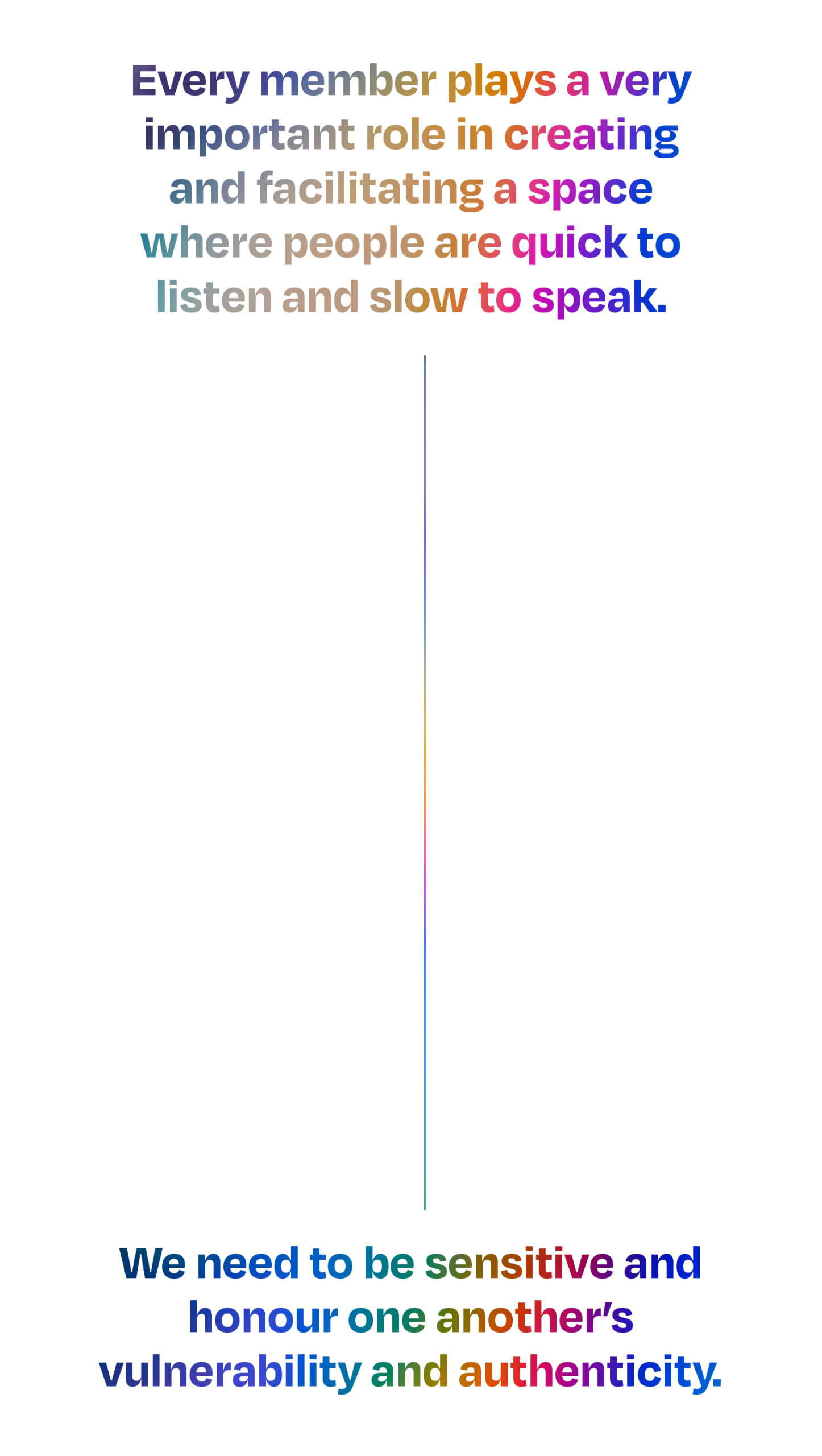Who doesn’t want to feel safe?
By human instinct, most of us would gravitate towards people we feel secure with. We search for these elusive “safe spaces” in which we can be accepted, understood and loved.
But for many Christians who experience same-sex attraction (SSA), the search for safe spaces is often fraught with great apprehension.
Church can sometimes appear to be a hostile and unwelcoming environment to such believers, causing some to turn away from the faith and look elsewhere for acceptance.
That cannot stand, so how can churches truly be a safe space for Christians who are figuring out matters of faith, gender and sexuality?
While every church is different, the general principles of creating a safe space remain the same – let me humbly offer some that I’ve found effective in my own circles.
Welcome vulnerability and honour it
I remember when my pre-believing friend first came out to me. With great hesitation and shifty eyes, she told me she liked a girl.
Right there and then, I desperately wished I had a manual: What To Do When Your Friend Comes Out To You 101.
In hindsight, I really have to thank God I didn’t botch everything up, for as someone with zero experience on such matters, we still managed to have a decent conversation.
We are still friends today, and we’ve established trust. She knows she can be vulnerable and honest with me, and that I won’t shut her down.
By God’s grace, I’ve become a safe space for her over the years – all because I was simply available for a vulnerable conversation.

I also know of someone with SSA who was afraid to attend church because of the fear of rejection and stigma.
However, a friend encouraged him to share honestly with his leaders and not shy away from the topic.
Thankfully, his leaders were open and receptive to having those honest conversations with him.
They welcomed him to talk with them again anytime, and continued journeying with him.
As such, he came more frequently to church and is still walking with God today.
He was able to find a safe space because his leaders were available and did not shy away from navigating important conversations.
That’s not to say that safe spaces can only created by leaders.
Members also play a very important role in creating and facilitating a space where people are quick to listen and slow to speak.
It’s also important to protect the person who is sharing by ensuring that whatever is shared stays within the group. After all, it’s their story to share, not ours.
We need to be sensitive and honour one another’s vulnerability and authenticity. Only then can we provoke more honest conversations among one another.
Listen and empathise
A good friend once shared with me a principle he held dear to his heart: Seek to understand before seeking to be understood.
Before we even respond to a friend’s heartfelt sharing, we should always ask more about them, instead of jumping to prescribe a solution.
Oftentimes, people don’t need a solution to what they’re going through. They just need someone to sit with them, much like how Job’s friends did.

Sad to say, some Christians respond immediately by sharing why they think it’s wrong or telling the person that they should pray more.
Even if they are somehow well-intentioned, such statements only serve to create an environment where one feels condemned and rejected.
We need to be patient and choose our words wisely. We might be knowledgeable on a topic, but knowledge is nothing without empathy.

It’s a cliché, but the people we journey with don’t care how much we know until they know how much we care.
They need to see that we don’t treat them as projects to be “completed” or as problems to be “solved”, but simply as people to be loved.
People just like you and me.
Speak truth with love
That’s listening. Now let’s think about talking.
There is a common belief that a safe space is where everyone agrees with and supports one another.
Can I offer a different perspective? The safest spaces I have ever been in are ones with people who dare to tell me the truth in love.
My parents are one such example. They don’t hesitate to tell me when I’m wrong, and discipline me for it if need be.
Yet I have the strongest assurance of their love for me, even though they’ve seen and know just how unlovable I can be.
I also have a group of friends in church who welcome me as I am – but don’t stop there.
They gently challenge me so that I don’t remain the same but continue to pursue Christlikeness.

In any relationship, we need love and truth.
Without love and truth, we become uncommitted to one another. We are like strangers who don’t bother with what happens to each other’s lives.
Love without truth is permissive. Anything goes, and we end up compromising our faith just to be “loving”.
However, truth without love gives the impression that we are judgmental. This creates a space where people don’t feel safe enough to share anything.
But love with truth brings about healing, and is needed if everyone is to journey towards Christ.
A place where everyone agrees with us is a comfortable space indeed. But comfort keeps us from growing into who Christ has called us to be.
Safe spaces should not defined by agreement, but by disagreement. What happens when someone holds differing opinions from the group?
The truly safe space is one where there is the guarantee of love and truth despite diverging viewpoints, and the willingness and humility to journey together regardless.
Here, I’d like to quote Timothy Keller on what he writes about love and truth:
“Love without truth is sentimentality; it supports and affirms us but keeps us in denial about our flaws. Truth without love is harshness; it gives us information but in such a way that we cannot really hear it. God’s saving love in Christ, however, is marked by both radical truthfulness about who we are and yet also radical, unconditional commitment to us. The merciful commitment strengthens us to see the truth about ourselves and repent. The conviction and repentance moves us to cling to and rest in God’s mercy and grace.”
The journey forward
The bottom line is, we are all sinful human beings. We all need a Saviour.
We find maximum security with those who know who we truly are, and still love us.
In other words, we find maximum security in Jesus. He is the only one who knows the depths of our hearts, and still reaches out to us in love.
So for those who have yet to find a safe space in church, I pray that you find one soon.
More than that, however, I pray that as you journey on – you find Jesus. He is our ultimate safe space.
To my brothers and sisters in Christ with SSA: We are sorry for the times we hurt you.
Thank you for showing us grace. Do show us how to journey alongside you better.
To the rest of us: Church is not just a physical building. We are the Church.
So as the Body of Christ, let’s strive to create safe spaces, where everyone has a seat at the table.
- What does a “safe space” mean to you?
- What is one thing you can do to make your spiritual community a safer space for conversations that matter?
- Pray for Singapore’s churches. Pray that the Holy Spirit will move us to be vulnerable, empathetic and speak the truth in love.









